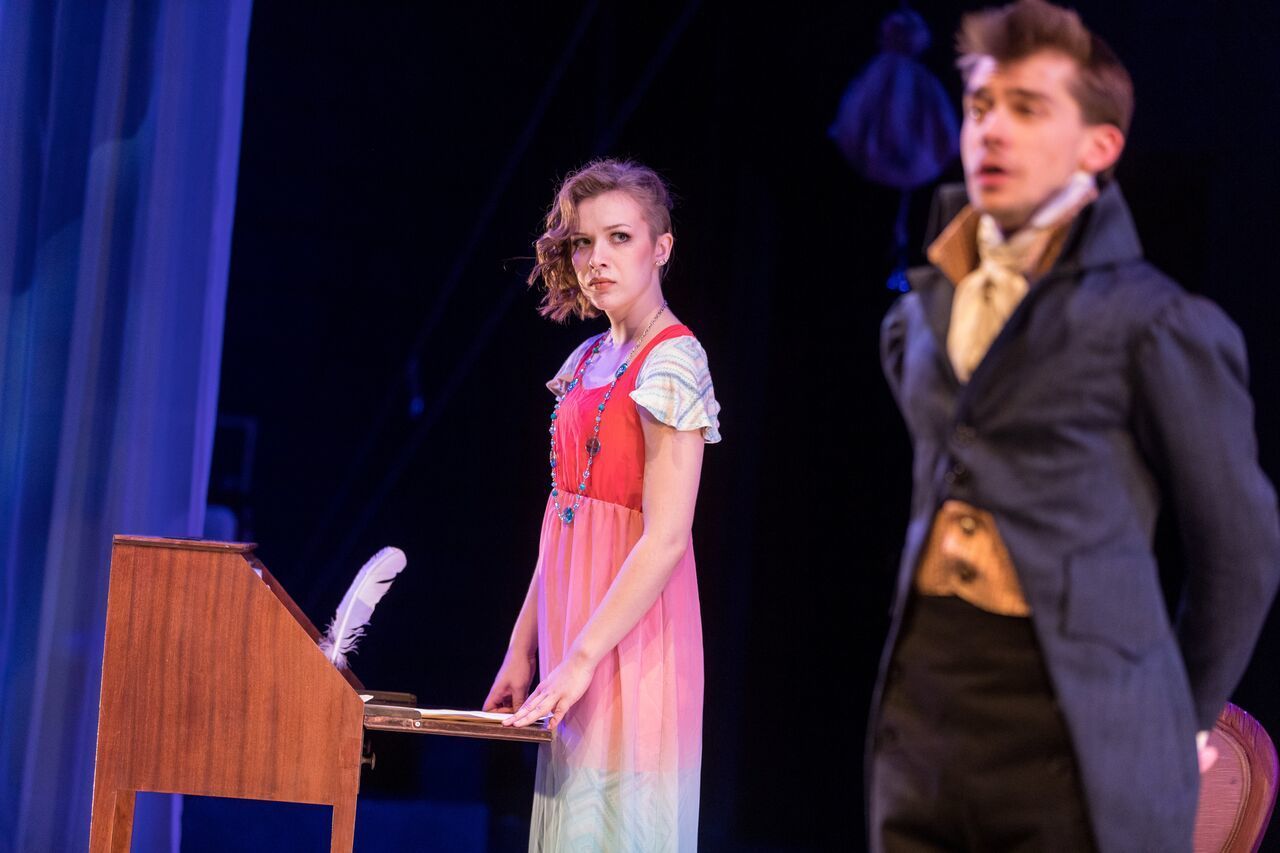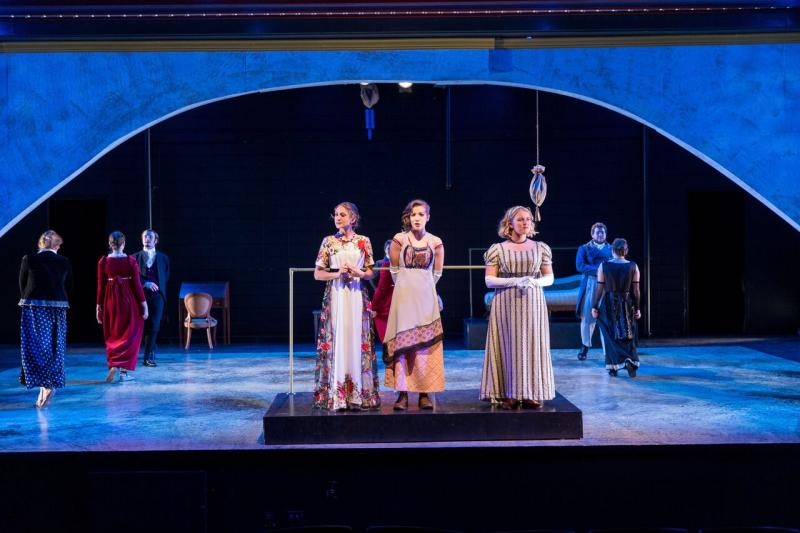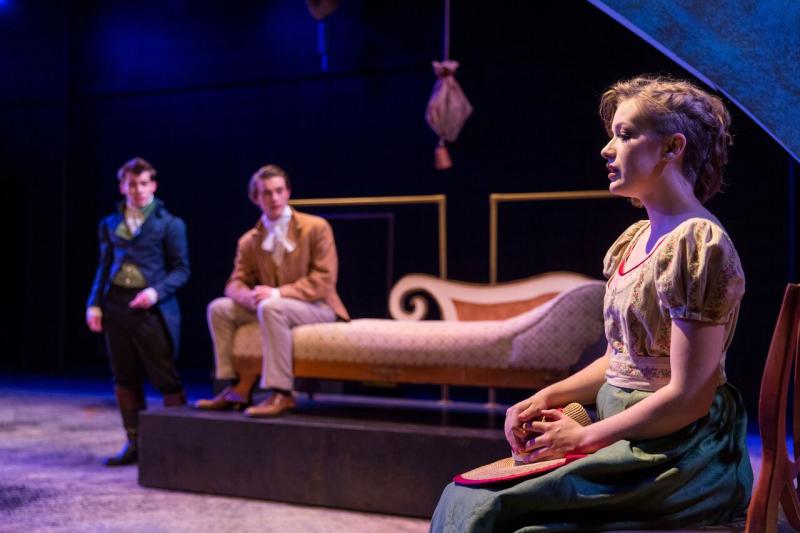Review: PRIDE AND PREJUDICE at Westmont Theatre Department

I've never been the type of literature junkie that swoons over the Austenian canon of 19th-century British romances. But the work of Kate Hamill, a young playwright who's adapting her way through Austen's classics, portrays regency concepts with a modern day sensibility on a bold and savage level. The Westmont Theatre Department's recent production of Hamill's Pride and Prejudice, directed by Mitchell Thomas, loosens the stays of 1800's British upper-class civility and brings the issues associated with competitive marriage games into unsettling focus.
Pride and Prejudice is Jane Austen's enduring classic, a romance with budding feminist notes. The Bennet family is low on cash, but flush with unmarried, eligible daughters (except for Mary Bennet who is constantly scorned by her family because, let's be real--nobody wants an awkward, brainy wife. William Blondell plays Mary as downcast and surly, accentuating her "undesirable" qualities). Mrs. Bennet (Abigail Cash) becomes a dynamo matchmaker for her two elder daughters, flaunting them about the local parties in hopes of snaring a rich man. Jane Bennet (Alex Gabriel) meets the wealthy Mr. Bingley (Ben Thomas); romance and complications ensue. Elizabeth Bennet (Cierra Denning) meets the dark-and-romantic / dour-and-elitist Mr. Darcy (Sean McElrath); complications and romance ensue. Even youngest sister Lydia (Olivia Stowell) finds a match; though it's considered social faux pas--not because Lydia is only 14, but because her beau is not a gentleman of appropriately high breeding.

Austen's commentary about a women's place in British society and the business of marriage is constructed with nuance in her novels. Her works show characters who mostly adhere to the confines of the "lady's place," though the more spirited women express gentle rebellion via the insistence of certain independences. Hamill's work uses Austenian dialogue to lure audiences into a proper countryside gathering at the height of manners, only to propel them into the shameless self-promotion of a Regency-style marriage meat-market as told from 21st-century awareness. Hamill's Pride and Prejudice expresses admiration for the original text while refusing to overlook the problematic old-world views about women in society. It's a little bit Keeping up with the Kardashians, a little bit Bachelorette, a little bit Downton Abbey; with truly hilarious and heartbreaking moments throughout.

This is an audacious piece for the Westmont theatre program, and the performers did an impressive job of finding modern humor while maintaining their Regency-era characterizations. It's an edgy and sophisticated production that not only proves the chops of the performers, but also showcased the progressive culture of the Westmont audience. When eligible suitor Mr. Collins (Justin Sharp) comes to select a wife between the two elder Bennet sisters, his "male gaze" was disquietingly palpable: when Collins kissed the hands of the ladies--with plenty of tongue--audience disgust was audible. When Charlotte Lucas (Kat Delaney) announced her engagement to Mr. Collins, there was no pretense of joy for the intended. The actresses in the scene weren't restrained in their expression of the situation's tragedy, even with the understanding that Charlotte's duty is to climb the social ladder to provide for herself through marriage.
Hamill's Pride and Prejudice creates the bridge that connects the nuanced tropes of Austen's 19th-century feminism to the conversations about gender equality happening currently. Westmont's production was a refreshingly fierce look at the symptoms of the gender power imbalance that are still festering in today's culture.
Videos
